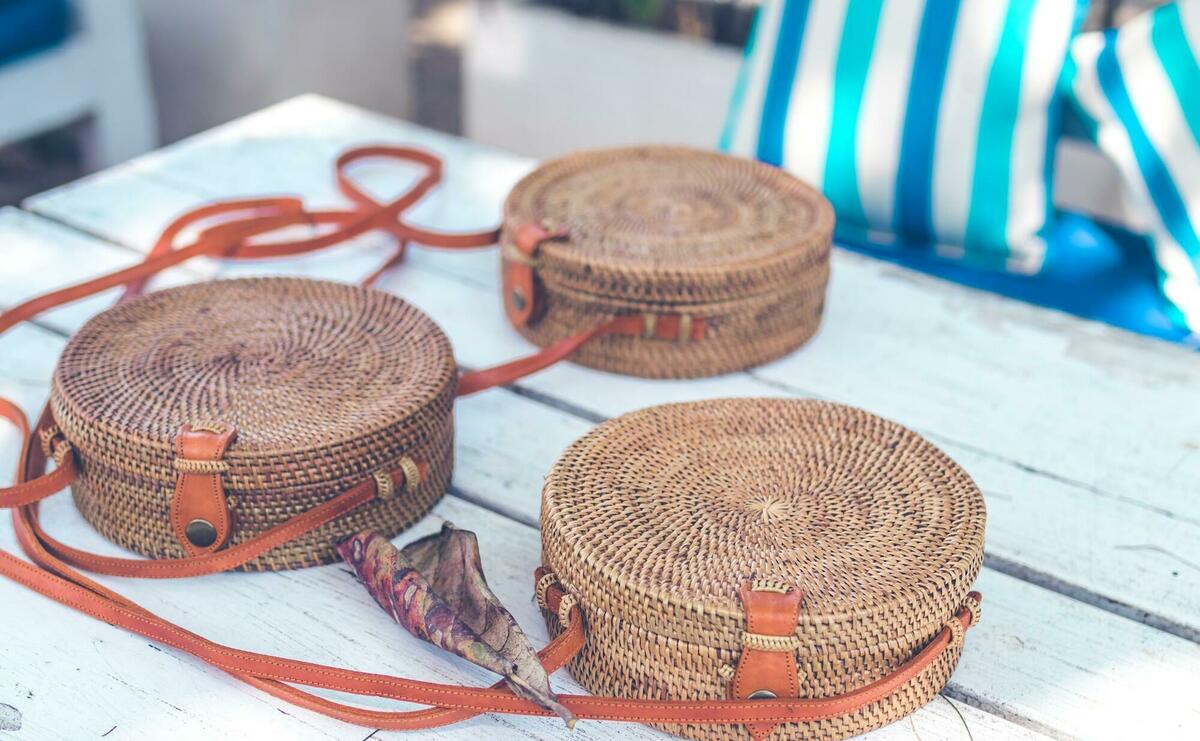Brand to Know: a Malaysian Line Producing Luxury Rattan Bags
It's strange that we don't recognize beauty in our surroundings. But, when it comes to our hometown, it takes a long time - possibly many years abroad - to open our eyes. That is the story of Sasibai Kimis, the founder of the Earth Heir accessories label. After 17 years abroad, she returned to Malaysia. More than just rattan bags and scarves, her brand Earth Heir may be an autobiography of her awakening.

Kimis was born in Ipoh, Malaysia, but moved to Singapore, the United States, the United Kingdom, and Ghana before arriving in Cambodia.
She met with weavers who had stopped weaving because they couldn't make a living from the trade, as well as families who had lost children to trafficking and children who had been rescued from trafficking. She wanted to do something to help. So Kimis began purchasing woven goods from these families and reselling them to family and friends. Her small act of kindness grew into a business.
Kimis soon realized that the same problem exists in her home country of Malaysia. The general public is unaware of the country's wealth of crafts and skills. In fact, Kimis was unaware of the craftsmanship and artisans who continue to exist in Malaysia.
The weaving of fabric, rattan, and leaves has a long history in Malaysia. Weaving fabric, for example, dates back to the 1400s. It's similar to the long-established dressmaking culture in Paris, where history, generations of skilled artisans, and exquisite materials define the trade. The only distinction? In Malaysia, these traditional skills are not celebrated.
Earth Heir now works with artisans on both the East and West Malaysian peninsulas. Their current network consists of approximately 100 artisans spread across Sabah, Sarawak, Terengganu, and Selangor.
Each region has its own technique and a place at Earth Heir. Batik, for example, dates from the 1920s. It is the art of using wax and paint to decorate fabrics. Tenun, or hand-loomed fabrics with a distinct, colorful plaid pattern, has been around since the 1700s.
Aside from traditional fabrics, there are numerous weaving techniques. For example, bamboo and rattan are stripped down and woven in a distinct square-on-square pattern in Anyaman's art. Smaller items, such as mats and baskets, can be woven in a day or two. Mengkuang, or pandan leaves, are collected, dried, colored, and woven into boxes, baskets, bags, and mats in other places.
The Mengkuang plant can take up to two years to mature but then grows quickly. It takes one to two weeks to harvest and process the leaves for weaving. The weaving process can take anywhere from one day to two weeks, depending on the item.
The artisans must predict the weather because pandan leaves crack in hot weather. Mengkuang can only be woven in cooler weather.
These people are known as 'artisans' in the slow fashion industry. They have the same title as employees in upscale Parisian ateliers. Kimis mentions these artisans with due regard.
She considers these items a luxury because they have the maker's personal and cultural narratives. Every step, from seed sowing to harvesting to finishing touches, is done by hand. These abilities are passed down through generations.
Mainstream notions of luxury may refer to mass-produced brand names. But, as we all know, most of these luxury items are outsourced and machine-manufactured by cheap labor. These marketed as "luxury" products are far from romantic.
However, some are still handmade, displaying beautiful artistry. It may refer to a few dedicated ateliers of fashion, jewelry, and accessories brands that believe in accountability and still handcraft their products. A woven rattan bag could be compared to a Paris-made dress in that line of thought.
Something made of rattan by an indigenous weaver may be considered luxurious by one person but derided by another.
However, consumers' perceptions of luxury are shifting. Genuine, handcrafted goods are becoming increasingly popular. Kimis believe some consumer fatigue with mass-produced products may appear to have less soul.